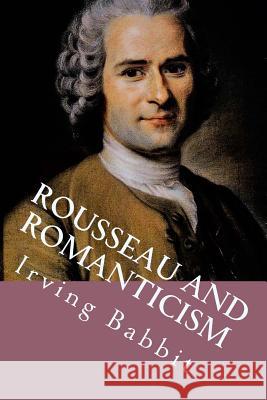Rousseau and Romanticism » książka
Rousseau and Romanticism
ISBN-13: 9781543149548 / Angielski / Miękka / 2017 / 454 str.
INTRODUCTION Many readers will no doubt be tempted to exclaim on seeing my title: -Rousseau and no end - The outpour of books on Rousseau had indeed in the period immediately preceding the war become somewhat portentous. 1] This preoccupation with Rousseau is after all easy to explain. It is his somewhat formidable privilege to represent more fully than any other one person a great international movement. To attack Rousseau or to defend him is most often only a way of attacking or defending this movement. It is from this point of view at all events that the present work is conceived. I have not undertaken a systematic study of Rousseau's life and doctrines. The appearance of his name in my title is justified, if at all, simply because he comes at a fairly early stage in the international movement the rise and growth of which I am tracing, and has on the whole supplied me with the most significant illustrations of it. I have already put forth certain views regarding this movement in three previous volumes. 2] Though each one of these volumes attempts to do justice to a particular topic, it is at the same time intended to be a link in a continuous argument. I hope that I may be allowed to speak here with some frankness of the main trend of this argument both on its negative and on its positive, or constructive, side. Perhaps the best key to both sides of my argument is found in the lines of Emerson I have taken as epigraph for -Literature and the American College-: There are two laws discrete Not reconciled, - Law for man, and law for thing; The last builds town and fleet, But it runs wild, And doth the man unking. On its negative side my argument is directed against this undue emphasis on the -law for thing, - against the attempt to erect on naturalistic foundations a complete philosophy of life. I define two main forms of naturalism-on the one hand, utilitarian and scientific and, on the other, emotional naturalism. The type of romanticism I am studying is inseparably bound up with emotional naturalism. This type of romanticism encouraged by the naturalistic movement is only one of three main types I distinguish and I am dealing for the most part with only one aspect of it. But even when thus circumscribed the subject can scarcely be said to lack importance; for if I am right in my conviction as to the unsoundness of a Rousseauistic philosophy of life, it follows that the total tendency of the Occident at present is away from rather than towards civilization. On the positive side, my argument aims to reassert the -law for man, - and its special discipline against the various forms of naturalistic excess. At the very mention of the word discipline I shall be set down in certain quarters as reactionary. But does it necessarily follow from a plea for the human law that one is a reactionary or in general a traditionalist?
Zawartość książki może nie spełniać oczekiwań – reklamacje nie obejmują treści, która mogła nie być redakcyjnie ani merytorycznie opracowana.











